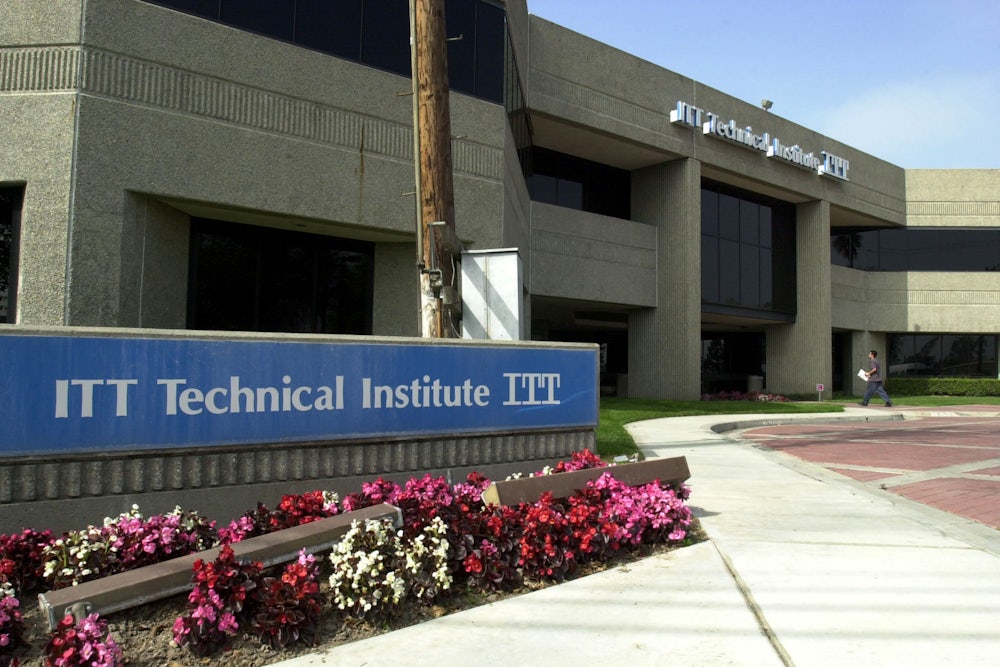ITT Technical Institute announced Tuesday morning it will close all of its campuses, displacing some 40,000 students and eliminating the jobs of most of its 8,000 employees. To many this isn’t much of a surprise.
Last year the CEO and CFO of the college were charged with fraud. And like many other for-profit colleges, the school earned much of its cash from federal student aid, which just last month had been cut off to new students.
The end of ITT Tech and similar for-profit colleges such as Corinthian Colleges, which closed in 2015, and Trump University, which is still at the center of several lawsuits, is long overdue. For-profit colleges have come under fire for their poor performance and willingness to profit off of students, who leave with a worthless degree and massive debt.
From The Atlantic:
A 2010 report found that only 22 percent of first- and full-time students pursuing bachelor’s degrees at these institutions in 2008 graduated, compared with 55 percent and 65 percent of students at public and private nonprofit universities, respectively. Meanwhile, nearly three-fourths—72 percent—of the programs offered at for-profit colleges produce graduates who earn less than high school dropouts.
That’s why last year President Barack Obama worked to close loopholes in the “90-10 rule” which is meant to bar schools from getting more than 90 percent of their revenue through federal aid, grants and loans. ITT Tech blamed the 90-10 rule for its demise on Tuesday.
But if Obama has pushed for-profit colleges to the brink over the last few years, it’s possible that a rosier future is ahead of those that can survive until 2017. Both presidential candidates have connections to the for-profit college industry: Trump through his eponymous university and Clinton via Laureate International Universities, where Bill Clinton was recently paid nearly $18 million to be an honorary chancellor.
